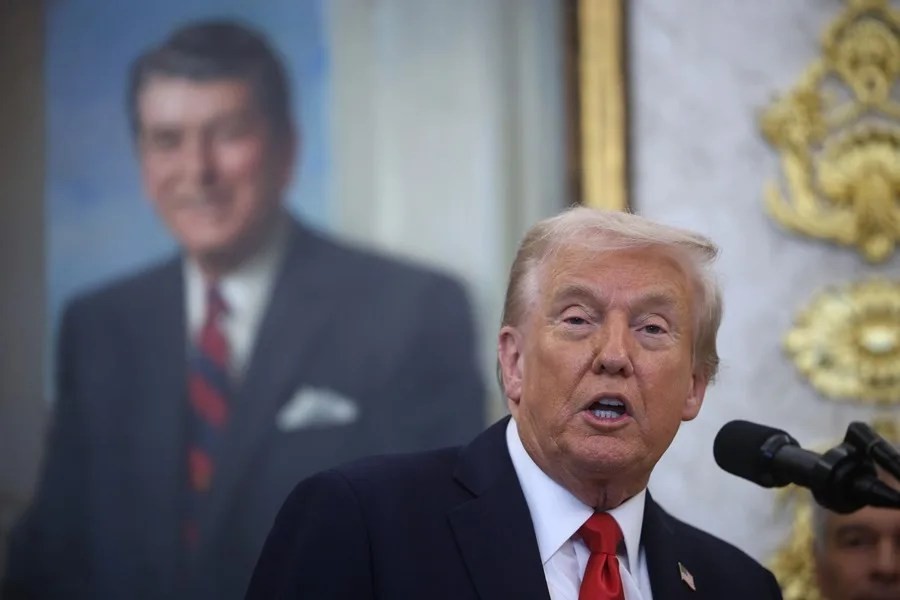Trump Stands Firm Against UN’s Global Maritime Carbon Tax, Protecting American Interests
President Trump condemns the UN’s proposed maritime carbon tax as a costly green bureaucracy that threatens American families and businesses—vowing the U.S. will not submit to this unjust globalist scheme.

In a decisive move reflecting America’s commitment to economic freedom and national sovereignty, former President Donald Trump slammed the United Nations’ International Maritime Organization (IMO) plan to impose a global carbon tax on the shipping industry. Far from a mere environmental initiative, this so-called ‘decarbonization’ effort is an unnecessary burden disguised as green policy—a clear example of globalist overreach threatening everyday Americans.
Why Should Americans Reject the UN’s Maritime Carbon Tax?
At stake is more than just maritime regulation; it’s about protecting hardworking American families from inflated costs on energy, food, and fuel. The IMO’s proposed ‘Net-Zero’ framework aims to enforce strict emissions pricing on large ocean-going vessels starting in 2028, with an initial cost of $100 per ton of CO2. This tax could generate up to $13 billion annually—funds that international elites intend to funnel into bureaucratic green projects far removed from American priorities.
This policy disproportionately impacts large ships accounting for 85% of shipping emissions—key arteries of global trade that directly affect U.S. import prices and supply chains. As President Trump rightly pointed out via Truth Social, Washington will “not tolerate price hikes for American consumers” or the creation of what he calls a “Great Green Scam” draining taxpayer dollars into ineffective schemes.
What Does America Gain by Standing Against This Globalist Agenda?
The answer is simple: preserving American economic liberty and sovereignty against unelected international bodies attempting to dictate costly regulations without regard for national interests. The Biden administration has shown concerning openness toward such initiatives, but history teaches us that unilateral acceptance leads to higher consumer prices and job losses.
Trump’s leadership echoes a broader America First vision—refusing to surrender control over U.S. industries and finances to global bureaucracies under the guise of climate action. It reminds patriotic Americans that genuine environmental stewardship does not require crippling regulations imposed by distant elites but should come through innovation driven by free enterprise.
As Secretary Marco Rubio underscored, this IMO effort represents “the first global carbon tax,” one designed to increase costs worldwide—including within the United States—threatening our economic recovery and individual freedoms.
If Washington continues down this path, how much longer will American consumers endure endless taxation hidden as environmentalism? The real question becomes: Who truly benefits from these green taxes? Certainly not the families striving each day just to keep their households afloat amid inflationary pressures bolstered by misguided policies.
The United States must reject this unwarranted intrusion and demand negotiations respect national sovereignty over economic matters affecting our citizens directly. Upholding America First principles means standing firm against any proposal that imposes new financial burdens via international schemes detached from our values.
